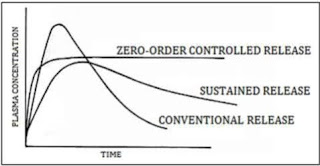Understanding Different Systems of Medicine
Introduction:
There are several systems of medicine that are
practiced around the world, each with its unique approach to treating
illnesses. Here, we will discuss four different systems of medicine: Ayurveda,
Unani, Homeopathy, and Allopathy.
Understanding
Ayurveda
Ayurveda is an ancient system of medicine that
originated in India thousands of years ago. It is based on the concept of
holistic health, which encompasses the physical, mental, and spiritual aspects
of a person's well-being.
Elements
Ayurveda is based on the principle that the universe
and the human body are made up of five elements: earth, water, fire, air, and
ether. These elements combine to form three doshas or energies in the body:
Vata, Pitta, and Kapha.
Doshas:
The three doshas, Vata, Pitta, and Kapha, are
responsible for the various functions in the body. When these doshas are in
balance, the body functions optimally. However, when there is an imbalance, it
can lead to various health issues.
Diagnosis
in Ayurveda
In Ayurveda, diagnosis is based on a combination of
physical examination, observation, and questioning the patient about their
symptoms and lifestyle. The practitioner also takes into account the patient's
dosha balance and determines the root cause of the issue.
Ayurvedic
Treatment
Ayurvedic treatment involves a combination of diet,
herbal remedies, yoga, meditation, and lifestyle changes. The aim of the treatment
is to restore the balance of the doshas and remove the root cause of the health
issue.
Benefits
of Ayurveda
Ayurveda has several benefits, including:
ü Promotes
overall well-being
ü Helps
in managing chronic diseases
ü Reduces
stress and anxiety
ü Improves
digestion and metabolism
ü Strengthens
the immune system
ü Promotes
healthy aging
Ayurveda
for a Holistic Life
Ayurveda is a time-tested system of medicine that
provides a holistic approach to health and well-being. By understanding the
doshas and making lifestyle changes, we can achieve balance and harmony in our
lives.
Understanding
Unani Medicine
Unani medicine is a traditional system of medicine
that originated in ancient Greece and was later developed by Arab physicians.
It is based on the principles of natural healing and the balance of the body's
humors.
The
Four Humors
Unani medicine is based on the concept of the four
humors: blood, phlegm, yellow bile, and black bile. These humors are believed
to be responsible for the various functions of the body, and when they are in
balance, the body functions optimally.
Diagnosis
in Unani Medicine
In Unani medicine, diagnosis is based on a
combination of physical examination, observation, and questioning the patient
about their symptoms and lifestyle. The practitioner also takes into account the
patient's temperament, or mizaj, which is determined by the balance of the
humors in the body.
Unani
Treatment
Unani treatment involves a combination of natural
remedies, such as herbs, minerals, and animal products, as well as dietary
changes and lifestyle modifications. The aim of the treatment is to restore the
balance of the humors in the body and remove the root cause of the health
issue.
Six
Essential Factors
In Unani medicine, there are six essential factors
that contribute to a person's health and well-being. These factors include air,
water, food, rest and activity, psychic movement, and excretion and retention.
A balance of these factors is essential for good health.
Benefits
of Unani Medicine
ü Unani
medicine has several benefits, including:
ü Promotes
natural healing
ü Treats
the root cause of the health issue
ü Helps
in managing chronic diseases
ü Reduces
stress and anxiety
ü Improves
digestion and metabolism
ü Strengthens
the immune system
Unani
Medicine for Holistic Health
Unani medicine is a time-tested system of medicine
that provides a holistic approach to health and well-being. By understanding
the balance of the humors and making lifestyle changes, we can achieve balance
and harmony in our lives.
Understanding
Homeopathy
Homeopathy is a system of medicine that was
developed in the late 18th century by German physician Samuel Hahnemann. It is
based on the principle of "like cures like," which means that a
substance that causes symptoms in a healthy person can be used to treat similar
symptoms in a sick person.
Dilution
and Potentization
Homeopathy uses highly diluted substances, known as
remedies, to stimulate the body's natural healing process. The remedies are
prepared through a process of dilution and potentization, where the original
substance is diluted in a series of steps until only a trace amount of the
substance remains.
Individualized
Treatment
Homeopathy focuses on the individualized treatment
of the patient, rather than the disease or condition. The practitioner takes
into account the patient's physical symptoms, emotional state, and overall
well-being in order to prescribe the appropriate remedy.
Holistic
Approach
Homeopathy takes a holistic approach to health,
recognizing that the physical, emotional, and mental aspects of a person are
interconnected. It aims to treat the whole person, rather than just the
symptoms of the disease.
Safety
and Side Effects
Homeopathy is considered a safe and non-toxic system
of medicine, with little to no side effects. The highly diluted remedies are
gentle and non-invasive, making them suitable for people of all ages and health
conditions.
Evidence
and Criticism
There is ongoing debate about the effectiveness of
homeopathy, with some studies showing positive results and others showing no
effect. Critics argue that homeopathy is based on pseudoscience and that the
highly diluted remedies are nothing more than placebos.
Homeopathy
for Natural Healing
Homeopathy offers a natural and gentle approach to
healing, focusing on the individualized treatment of the patient and the
promotion of overall health and well-being. While its effectiveness is still
debated, many people have found relief from their symptoms through homeopathy.
Understanding Allopathic Medicine
Allopathic medicine, also known as modern or Western
medicine, is a system of medicine that is based on the scientific method and
the use of drugs and surgeries to treat and prevent disease.
Diagnosis
and Treatment in Allopathic Medicine
Allopathic medicine uses a variety of methods to
diagnose and treat disease, including medical history, physical examination,
laboratory tests, and imaging studies. Treatment may involve the use of drugs,
surgeries, radiation therapy, or other medical interventions.
Evidence-Based
Practice
Allopathic medicine places a strong emphasis on
evidence-based practice, which means that medical decisions are based on the
best available scientific evidence. Clinical trials and research studies are
conducted to evaluate the safety and effectiveness of medical interventions.
Specialties
in Allopathic Medicine
Allopathic medicine has many specialties, including
cardiology, neurology, oncology, dermatology, and many more. Specialists
receive additional training and education in their specific area of expertise.
Advancements
in Allopathic Medicine
Allopathic medicine has made many advancements in
the past century, including the development of antibiotics, vaccines, and new
surgical techniques. Medical technology has also advanced, allowing for more
accurate diagnoses and better treatment outcomes.
Criticisms
of Allopathic Medicine
Allopathic medicine has faced criticism for its
overreliance on pharmaceuticals and medical interventions, leading to potential
side effects and overuse. Some critics argue that the focus on treating
symptoms rather than addressing underlying causes may not promote long-term
health.
Allopathic
Medicine for Modern Healthcare
Allopathic medicine is a vital part of modern
healthcare, providing effective treatments for many diseases and conditions.
While there are criticisms, evidence-based practice and ongoing advancements
continue to make allopathic medicine an important contributor to health and
wellness
Comparison
of Different Systems of Medicine
Each system of medicine has its strengths and
weaknesses. Ayurveda and Unani emphasize the importance of a holistic approach
to health, while Homeopathy and Allopathy focus on the diagnosis and treatment
of specific diseases. Homeopathy and Unani use natural remedies, while
Allopathy relies on synthetic drugs.
Choosing
the Right System of Medicine
Choosing the right system of medicine depends on
several factors, including the nature of the illness, the patient's overall
health, and personal beliefs and preferences. It is important to work with a
qualified healthcare practitioner to determine the best course of treatment for
each individual patient.



Comments
Post a Comment
Thanks